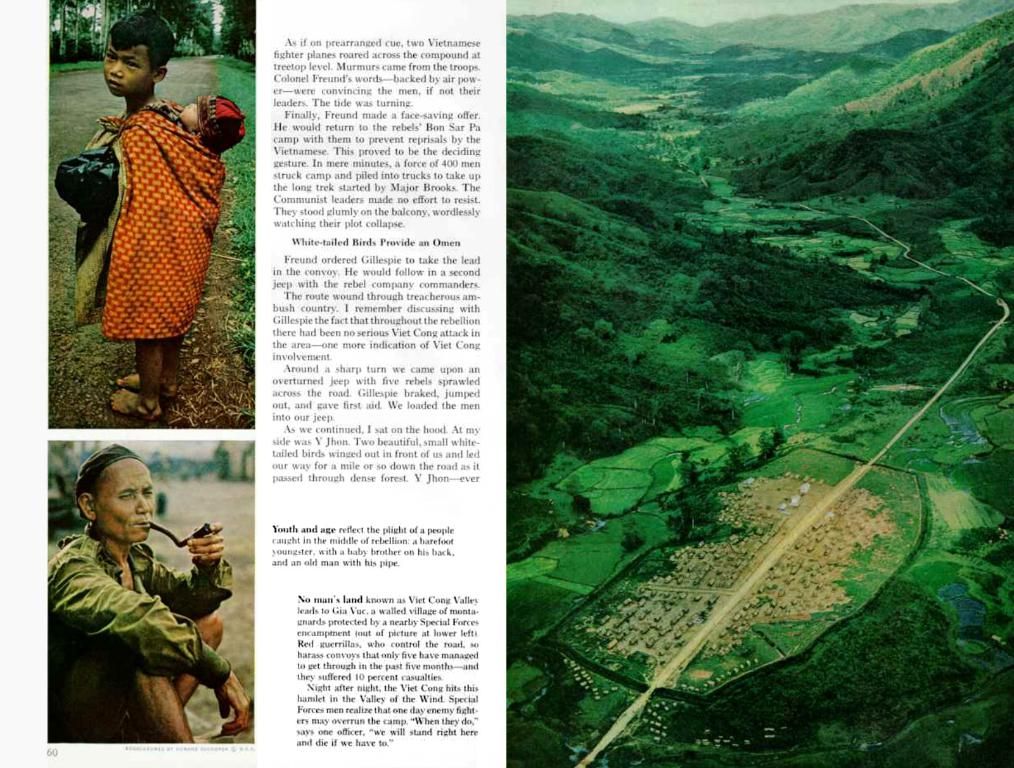International travel restrictions imposed by Trump on citizens from 12 distinct nations become active
A Fresh Perspective:
Washington - It's been a rollercoaster ride with President Trump's latest travel crackdown, effective from Monday. The revised order, unveiled last week, targets travelers from 12 predominantly African, Middle Eastern countries, stirring up more tension in Trump's aggressive immigration crackdown.
The unfolding proclamation encompasses citizens from Afghanistan, Myanmar, Chad, the Republic of Congo, Equatorial Guinea, Eritrea, Haiti, Iran, Libya, Somalia, Sudan, and Yemen. There's an extra layer of restrictions for people from Burundi, Cuba, Laos, Sierra Leone, Togo, Turkmenistan, and Venezuela who are outside the U.S. without valid visas.
Unlike Trump's first-term visa bar, this new one doesn't invalidate visas previously issued to those hailing from countries on the list. However, unless you meet stringent exemption criteria, your travel application will be rejected starting Monday. Don't worry, though, travelers with valid visas should still be able to enter the U.S. even after the new ban kicks in.
The chaos that ensued back in Trump's first term from a hastily drafted executive order denying entry to mostly Muslim countries is hopefully a thing of the past. There was a noticeable lack of airport upheaval in the hours following the new ban coming into force.
Americans with Haitian roots, like Elvanise Louis-Juste, are deeply concerned about the travel ban. Louis-Juste, a 23-year-old New Jersey native, expressed her distress while waiting for her flight to Florida, stating, "I have family in Haiti, so it's pretty upsetting to see and hear. I don't think it's a good thing. I think it's very upsetting."
Rita Bernstein, an immigration attorney, asserts that this travel ban is more strategically crafted compared to the first, with a focus on the visa application process and presumably designed to circumvent legal challenges.
Trump justified the new ban, linking it to a recent terrorist attack in Boulder, Colorado. The perpetrator, an Egyptian national, had overstayed a tourist visa. However, it's worth noting that Egypt is not on the restricted list.
The travel ban drew fierce criticism from organizations providing refugee aid services. Abby Maxman, president of Oxfam America, added her voice to the opposition, stating, "This policy is not about national security—it is about sowing division and vilifying communities that are seeking safety and opportunity in the United States."
The addition of Afghanistan to the travel ban caused ripples among those working to resettle refugees from the war-torn nation. Critics argue that the travel ban undermines the U.S.'s commitment to safeguard and resettle Afghan refugees.
To put it simply, the president's new travel ban has added fuel to the fire in immigration debates, highlighting divisions and sparking unrest. It remains to be seen how courts will interpret this policy and the potential impact on international relations.
Keywords:
- Trump Travel Ban
- Immigration Enforcement
- Donald Trump
The Trump Travel Ban, implemented on Monday, has sparked outrage from immigration advocates and concerned citizens, as the revised policy targets travelers from 12 predominantly African and Middle Eastern countries, with additional restrictions for citizens from Burundi, Cuba, Laos, Sierra Leone, Togo, Turkmenistan, and Venezuela.
This new policy has added fuel to the ongoing debate on immigration enforcement, with organizations focused on refugee aid and general-news outlets discussing its implications on domestic politics, policy-and-legislation, and international relations.







